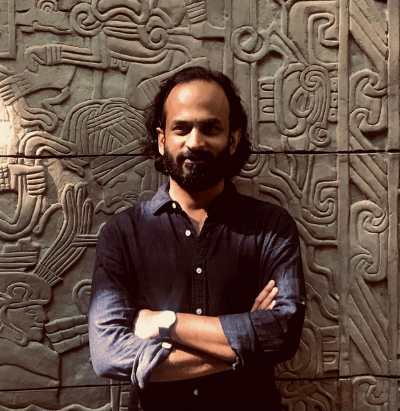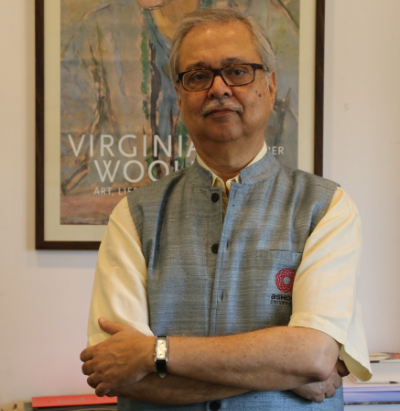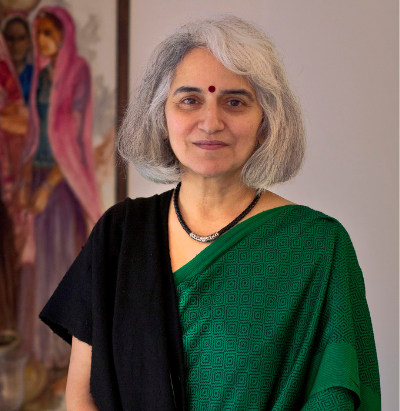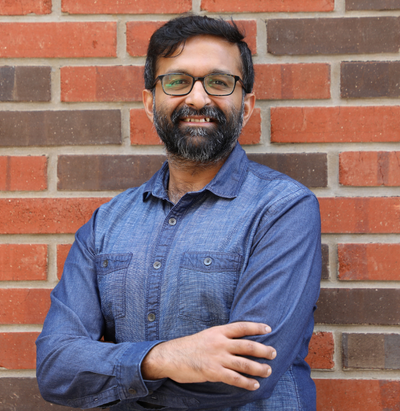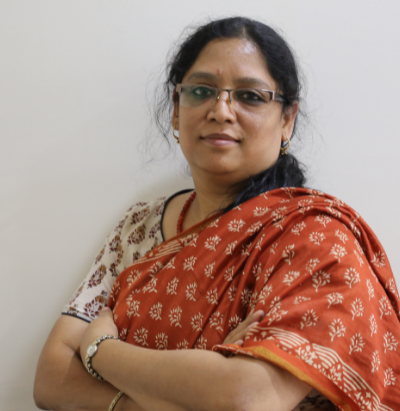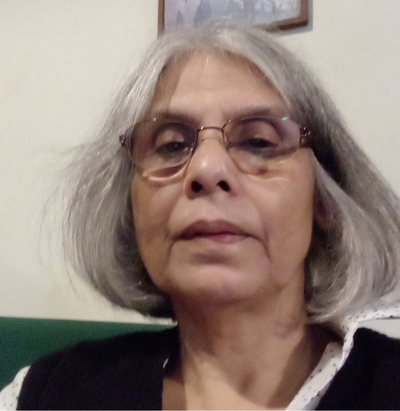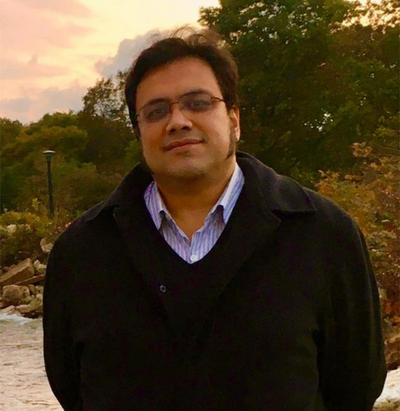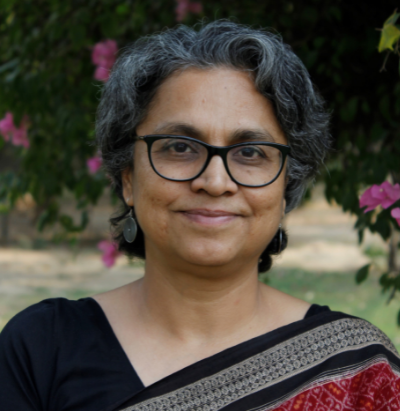Indian Civilizations introduces students to the various influences that have fashioned the civilizations that are integral to the history of India, with an emphasis on the multiplicity of strands in Indian culture and tradition from pre-history to the present. The rich and varied ideas and thoughts from the ancient times to the modern age and their expression through art and artefacts, through literature and philosophical writings, will form the basis for discussions for an understanding of the plurality of Indian civilizations.
Faculty
Semester: Monsoon 2023
In this course we explore the idea of Indian civilization, with civilization defined as varying expressions of collective vitality, and the emergence of creative rather than destructive forms of contestation and cohabitation within structures of hierarchy. Rather than a sharp break between tradition and modernity, we seek to understand the ways in which old and new theological and civilizational questions and forms endure and are transfigured across three domains: politics, aesthetics and ethics. In each of these domains we examine the birth of ideas, moving across religious and secular formations, such as, in politics, Gandhi’s idea of how brute force may (or may not) be transformed into soul force, as well as Ambedkar’s embrace of Buddhism; in aesthetics, we examine Hindu-Urdu cinema as a lyric tradition, situated alongside older lyric traditions, which have had a critical task of teaching a society defined primarily by caste (in marriage and social structures of interaction), how to express love and forms of friendship and intimacy with others; in ethics we examine the ways in which potentially hostile neighboring groups have found ways of living together, amidst older and newer contestations of ideas of high and low, or self and other. Through these and other examples of the birth of ideas within politics, aesthetics and ethics, moving across disciplines, theologies, texts, films, and images, this course aims to teach students to think creatively about key concepts in Indian collective and intimate life such as caste, tribe, religion, sexuality, and gender, and about civilization as forms of collective vitality that may also wane, or be replenished.
Semester : Monsoon 2023
This is a small course about a large and fascinating subject, that of Indian Civilizations. It has been structured in a way that it can be immersed in, we hope, with enjoyment. The course will draw out civilizational elements from prehistory till the present – through travels and lives, through ideas and art forms – in which small phenomena will be linked to the larger world of the Indian subcontinent and beyond. In the process, the course will explore a varied and rich tapestry that includes rock art, the Harappan Civilization, the Mahabharata’s many stories, the iconic emperors Ashoka and Akbar, and the words of the Buddha and the Bhakti saints. Indian civilizations, as the course will emphasize, are not to be seen merely as part of the dead past but as elements that continued to be invoked in present times, by literary giants like Rabindranath Tagore and statesmen like Jawaharlal Nehru, and by more ordinary people in India’s villages and towns. Readings will be electronically shared with students.
Semester : Spring 2024
Consider the sport of cricket. Is this deeply loved sport that evokes tremendous passion, comradery, friction, and rivalry across South Asia, a part of Indian civilization? Many believe that cricket is a religion in India. But there is no doubt that this sport (or religion if you like) was invented by the British and came to South Asia via colonialism. How we answer the question of cricket’s place in Indian civilization, then, shows the variety of ways in which we conceptualize both civilization and India. Our answer is also most likely to suggest that for the idea of civilization to have traction, it must be grounded in some notion of territory, culture, and history. This course therefore is about how territory, culture, and history came together in specific ways to make Indian civilization thinkable in today’s day and age. Further, this course deliberates on where and when Indian civilization began and where and when it ends. It asks what is so Indian about Indian civilization? It explores the relationships between Indian civilization and some of South Asia’s economic, political, and social potentialities and limitations. And most importantly, it considers the stakes involved in posing and answering the central questions that motivate this course. This foundation course (FC) is divided into two modules: Where is Indian Civilization? Why Europe Grew Rich But India Did Not? The first module explores historical processes that make South Asia and India a recognizable entity today. The second module introduces students to key perspectives on the nature of Indian civilization and its impact on India’s economic, political, and social trajectories from 1600 onwards.
This foundation course will challenge the ways students look at the past, and through it, the present and the future.
Semester : Monsoon 2023
This course unlocks the mystery called Indian civilizations. What were they after all? The Indian civilizations can be likened to the boggarts that pounced out of the cupboard during Professor Remus Lupin’s class on the Defence Against the Dark Arts (from the Harry Potter Series). The boggarts were shape-shifting non-beings and no one really knew what they looked like.
On pouncing out, they at once took the form of students’ imagination and morphed into a tarantula, a dementor or an angry granny. Indian Civilizations are much the same. They don’t have any one form. They shift their shape according to the social group imagining them. For instance, for the nationalists, Indian civilization was the dazzling high Brahmanical and Sanskritist culture. For the hedonists, Indian civilization was about materialism and eroticism. For the Dalits, Indian civilization was about Aryan oppression of the indegenous peoples. For the European travelers, Indian civilization was seeped in social hierarchies and the personal despotism of the rulers. Through the semester you will come across several Indian civilizational boggarts. These encounters will expose you to the diverse imaginations that constitute the country that we know as India. Learning to appreciate this diversity will be your first lesson in Defence against the Dark Arts.
Semester : Monsoon 2023
This is a small but challenging course which covers a vast and complex ground and raises difficult questions. For instance, does the term “ civilization “ have a fixed meaning ? What aspects of historical experience are left out of such definitions, and why? Which categories of people are commonly regarded as the authentic creators of our civilization and who are left out of their ranks?
Is there an Indian civilization which has a single, invariant essence, despite the immense cultural diversities in the subcontinent’s long history? If there is, indeed, a thread of unity that runs through all our historical epochs, then how do we define it? Is Indian civilization completely home-grown, developed from indigenous cultural resources alone? Or has it been enriched by many other cultures of the world which mingled with it? Is our civilization a seamless? harmonious phenomenon or is it also the product of conflicts and contradictions ?
The course will try to address some of these questions. It intends to introduce the students to a few areas of Indian lives and cultures from prehistory to the modern age. It will focus on changing patterns of material and cultural production, knowledge forms, religious belief and ritual, among different communities in different historical periods. It will also explore the persistent inequalities in our collective social life and the marginalization of subaltern people who do not have access to the riches of our civilisation.
Semester: Monsoon 2023 and Spring 2024
There is one thing in which India today is unquestionably the world leader, viz. our population. There are more people in our country than in any other in the world. At a very basic level this demonstrates an ability to stay alive and multiply. In other words, to understand and care for human bodies. There are, therefore, few better vantage points than our understandings of human bodies and health through which to explore the contours, characteristics, and even the plausibility of an ‘Indian civilization’. Have there been particular civilizational ways to think about human bodily health? If so, what are these and how best to understand them? These are the main questions we will explore in this course.
To answer the questions, we will delve into over two millennia of medical ideas and practices in region. We will learn about the classical Sanskrit works of Caraka and Susruta, the Persianate canon of Ibn Sina, the birth of modern pandemics during the British Raj, heart transplants in postcolonial India and, finally, the profits and privations around the patenting of medicinal herbs like neem.
At the end of the course, students will acquire a broad sense of both Indian history in general and, more specifically, the history of medicine. They will further acquire critical tools for thinking about the role of specialized technical knowledge within society. Additionally, the course will also hone critical thinking and writing skills.
Semester: Spring 2024
Is there such a thing as ‘Indian civilization?’ Is it one or many? How far back in time do we have to travel in order to discover it? Starting from the dawn of history and taking a long view of the past, how can we make sense of the seemingly endless detail, the bewildering variety and uneven textures, the striking continuities shot through by even more striking changes? Does civilization reveal itself in the everyday rhythms of life of village folk, city dwellers or forest tribes? Is it represented in artefacts or ideas, in simple objects or grand monuments, in folk songs or classical literature? This course answers such questions by looking at Indian civilization through the coexistence of contradictions. We will see the coexistence of unequal societies with promises of salvation for all; of social prudery with a celebration of sexuality; of misogyny with the worship of goddesses; of religions preaching nonviolence with a politics marked by war and violence; of religious dialogue with religious conflict; of an inward-lookingness despite centuries of lively interactions with the world. By exploring such contradictions, the course will show that the past is neither dead nor dull, and that we need to understand it in order to understand our present and ourselves.





